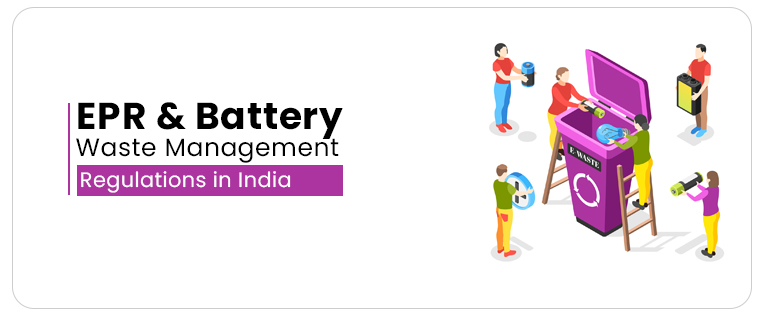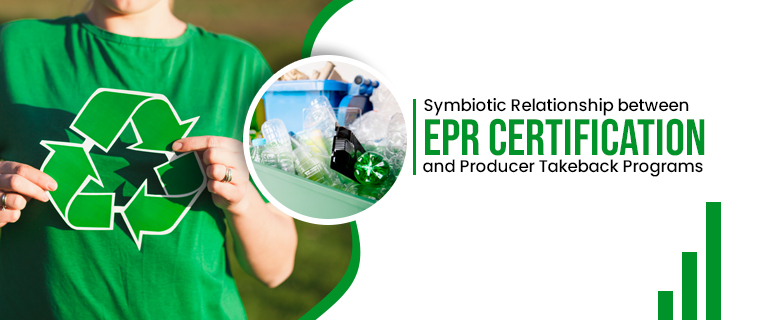EPR & Battery Waste Management Regulations in India
With the surge in electric vehicles and the growing use of electric batteries, the Ministry of Environment, Forest and Climate Change has introduced the "Battery Waste Management Rules." These rules, replacing the previous regulations from 2001, aim to address the environmental impact of battery waste and promote sustainable practices like EPR Certification.
Applicability of the New Rules:
The regulations cover a spectrum of entities involved in the battery life cycle, including producers, manufacturers, traders, dealers, consumers, assemblers, and other establishments engaged in collection, segregation, reprocessing, transportation, and recycling of waste batteries. Central to these rules is the concept of Extended Producer Responsibility (EPR), which places the onus on producers and importers for the proper management of waste batteries.
Read also this-: The Vital Role of EPR Certificates in E-Waste RecyclingUnderstanding Waste Batteries
Waste batteries, as defined by the rules, encompass end-of-life or used batteries, discarded batteries, and those diverted during the manufacturing process. This includes various battery categories such as electric vehicle batteries, automotive batteries, portable batteries, and industrial batteries.
Key Highlights of the Battery Waste Management Rules
1. EPR Responsibilities:
2. Material Recovery:
The rules mandate a minimum percentage of material recovery from waste batteries, driving technological advancements and creating business opportunities.
3. Encouraging Entrepreneurship:
The regulations aim to foster entrepreneurship and industrial participation in waste battery collection, refurbishing, and recycling.
4. Environmental Compensation:
Non-compliance with EPR obligations and targets may result in environmental compensation, aligning with the Polluter Pay Principle.
Effects of EPR for Battery Waste Management:
1. Extended Producer Responsibility:
Producers are responsible for arranging the restoration, collection, and recycling of used batteries, with EPR targets varying based on battery types.
2. Battery Swapping Policies:
The introduction of battery swap policies promotes sustainable development in electric vehicles, encouraging a 'Battery as a Service' model.
3. Centralized Online Portal:
The Central Pollution Control Board (CPCB) has implemented a centralized portal for registration and submission of battery waste returns, facilitating EPR certification exchange.
4. Labelling Requirements:
Producers must adhere to Bureau of Indian Standards (BIS) guidelines for batteries, especially those containing heavy metals, marked with appropriate symbols.
EPR Compliances for Waste Battery:
1. Producer Responsibilities:
Producers must ensure EPR responsibilities are fulfilled and comply with collection, recycling, and refurbishing targets outlined in the regulations.
Read also this-: Demystifying the full form of EPR Certificate2. Registration and Reporting:
Producers register with CPCB, receive an EPR certificate, and submit annual EPR plans for the previous year's batteries.
3. Labelling and Prohibition:
Adherence to labelling and prohibition requirements is crucial for producers, including ensuring a minimum percentage of domestically recycled materials in new batteries.
In a Nutshell:
The Battery Waste Management Rules offer a green legislative framework to transition from oil to electric in an eco-friendly manner. EPR registration for battery waste is a cornerstone, ensuring responsible practices from producers, recyclers, and refurbishers. For any assistance related to battery waste EPR registration and compliance, feel free to reach out to the experts of LegalRaasta.




Comments
Post a Comment